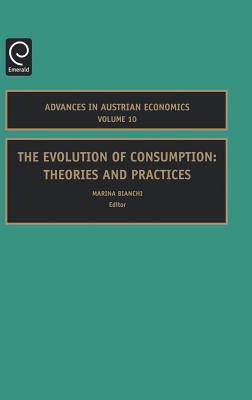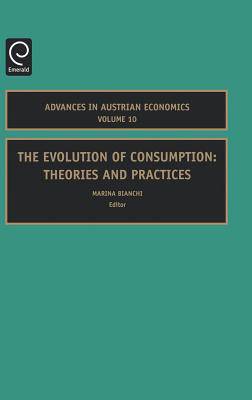
- Afhalen na 1 uur in een winkel met voorraad
- Gratis thuislevering in België vanaf € 30
- Ruim aanbod met 7 miljoen producten
- Afhalen na 1 uur in een winkel met voorraad
- Gratis thuislevering in België vanaf € 30
- Ruim aanbod met 7 miljoen producten
Zoeken
The Evolution of Consumption
Theories and Practices
€ 249,95
+ 499 punten
Omschrijving
The theory of consumer choice fills the opening chapters of any micro-economic textbook. Yet, surprisingly, this position of privilege has not translated into a flourishing of economic research that is comparable to what has happened in other branches of economic reasoning. Starting with Menger, the Austrian economic tradition has always shifted the focus of attention from the problem of equilibrium to that of social order, to the evolution of norms, institutions and practices that favor social cooperation and coordination. Within this tradition competition and markets are not viewed as states, but as processes in which change and errors occur and efficiency is reached but also easily lost. The real economic problem becomes a problem of knowledge how it is discovered, how it is transmitted. Consumer's interactions and choices and actual consumption practices play an important role in these evolving forms of sociality. And it is within this framework that allows for experimentation and learning, that they should be studied. This title is part of the "Advances in Austrian Economics" series. It contains a collection of high-level papers on the evolution of consumption.
Specificaties
Betrokkenen
- Uitgeverij:
Inhoud
- Aantal bladzijden:
- 276
- Taal:
- Engels
- Reeks:
- Reeksnummer:
- nr. 10
Eigenschappen
- Productcode (EAN):
- 9780762314522
- Verschijningsdatum:
- 19/07/2007
- Uitvoering:
- Hardcover
- Formaat:
- Genaaid
- Afmetingen:
- 156 mm x 234 mm
- Gewicht:
- 562 g

Alleen bij Standaard Boekhandel
+ 499 punten op je klantenkaart van Standaard Boekhandel
Beoordelingen
We publiceren alleen reviews die voldoen aan de voorwaarden voor reviews. Bekijk onze voorwaarden voor reviews.










